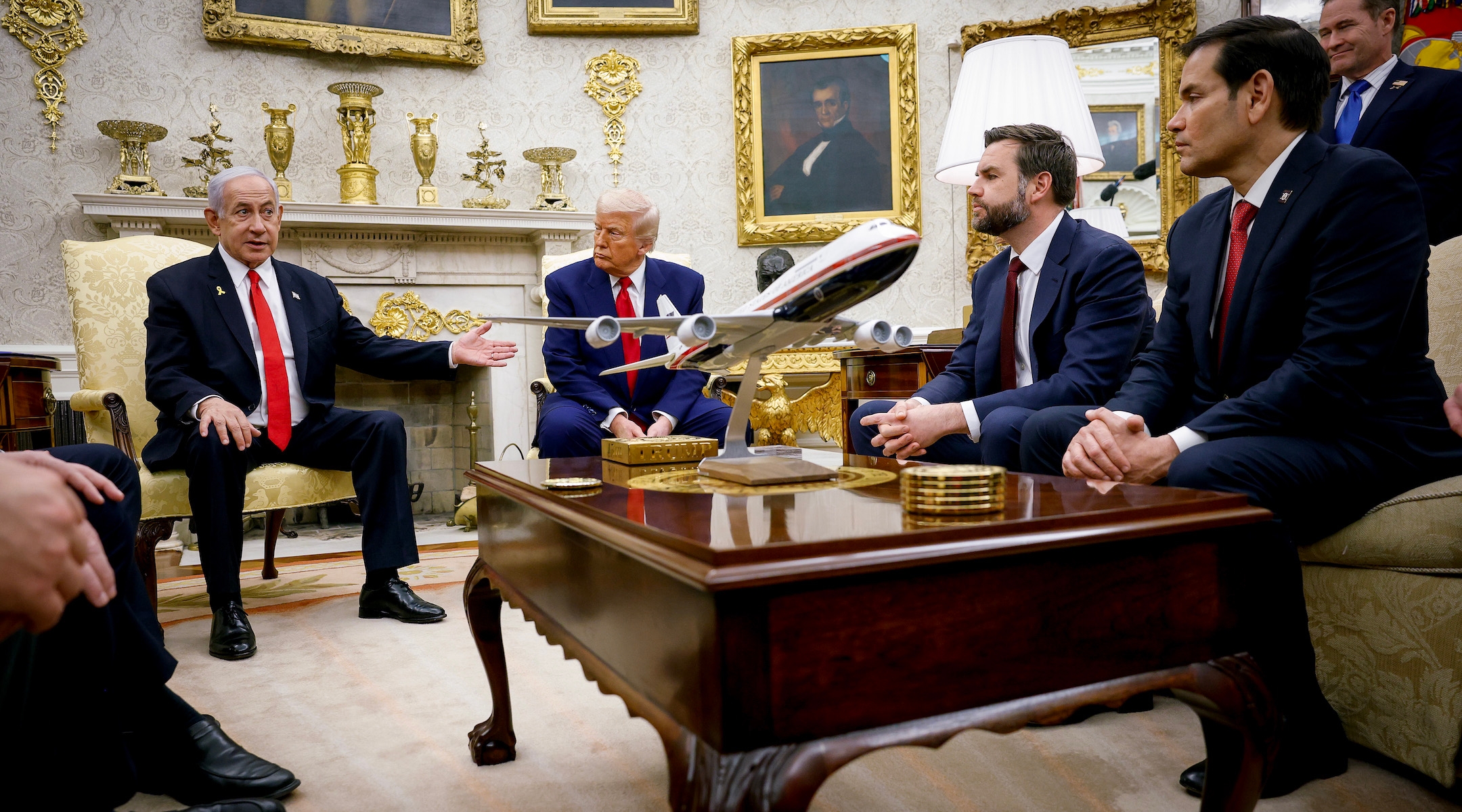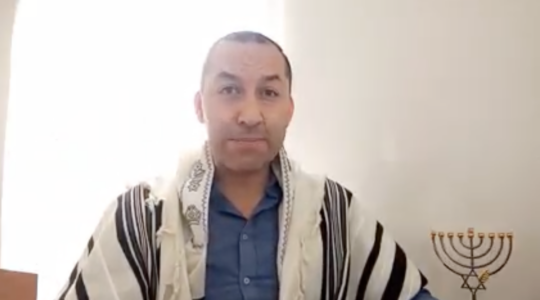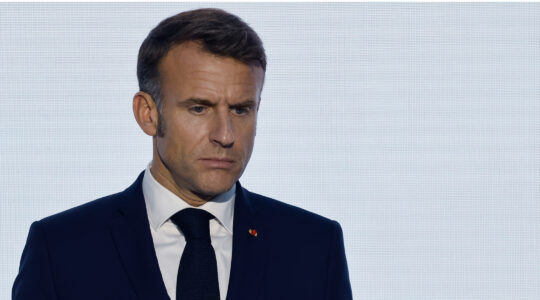Donald Trump loves making dramatic pronouncements in his Oval Office meetings — and his revelation that the United States was entering talks with Iran was no exception. Sitting alongside Benjamin Netanyahu during the Israeli prime minister’s second White House visit, he told the world that, within days, the United States would open direct talks with Iran — Israel’s archnemesis.
The talks will focus on Iran’s nuclear program — which Israel, the United States and other countries have long said is meant to produce nuclear weapons. They will be the first direct negotiations between the United States and Iran in a decade, and will aim to replace an agreement that Netanyahu and Trump both reviled.
Here’s how these talks came about, what might happen, and what it means for Israel.
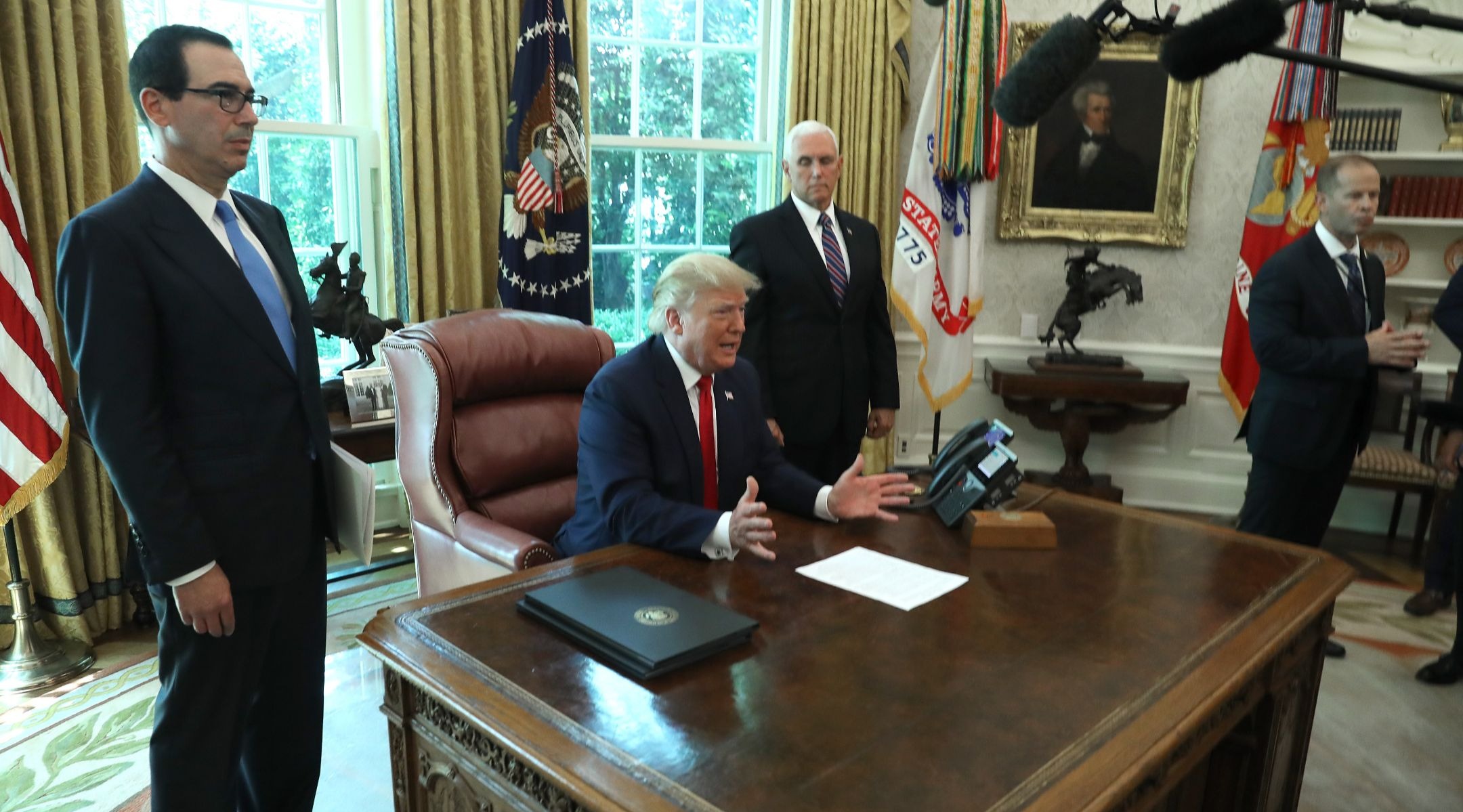
President Donald Trump speaks as Vice President Mike Pence, right, and Treasury Secretary Steve Mnuchin look on before the signing of an executive order imposing new sanctions on Iran in the Oval Office at the White House, June 24, 2019. (Mark Wilson/Getty Images)
Why are the United States and Iran negotiating?
For decades, Israel and the United States have accused Iran of pursuing the bomb. In response, the United States has leveled waves of sanctions on the country, and assassinated one of its top generals. Israel has fought a shadow war against it — assassinating nuclear scientists, infecting Iranian systems with an advanced virus and employing other forms of subterfuge.
Although Iran has said that it is not building a nuclear weapon, that claim has met widespread skepticism. Iran has enriched uranium to high enough levels in order to build a bomb, and successive warnings have said that the country is “closer than ever” to being a nuclear state.
A nuclear-armed Iran would pose clear risks to Israel, a close U.S. ally that itself is assumed to have nuclear weapons. Iran has repeatedly called for Israel’s destruction, and funds a network of terror groups that attack it. Last year, Iran and Israel fought their first-ever rounds of direct combat. Iran also funded attacks on U.S. troops during the Iraq war.
Other neighbors of Iran, particularly Gulf states, also fear the idea of their regional rival possessing the bomb.
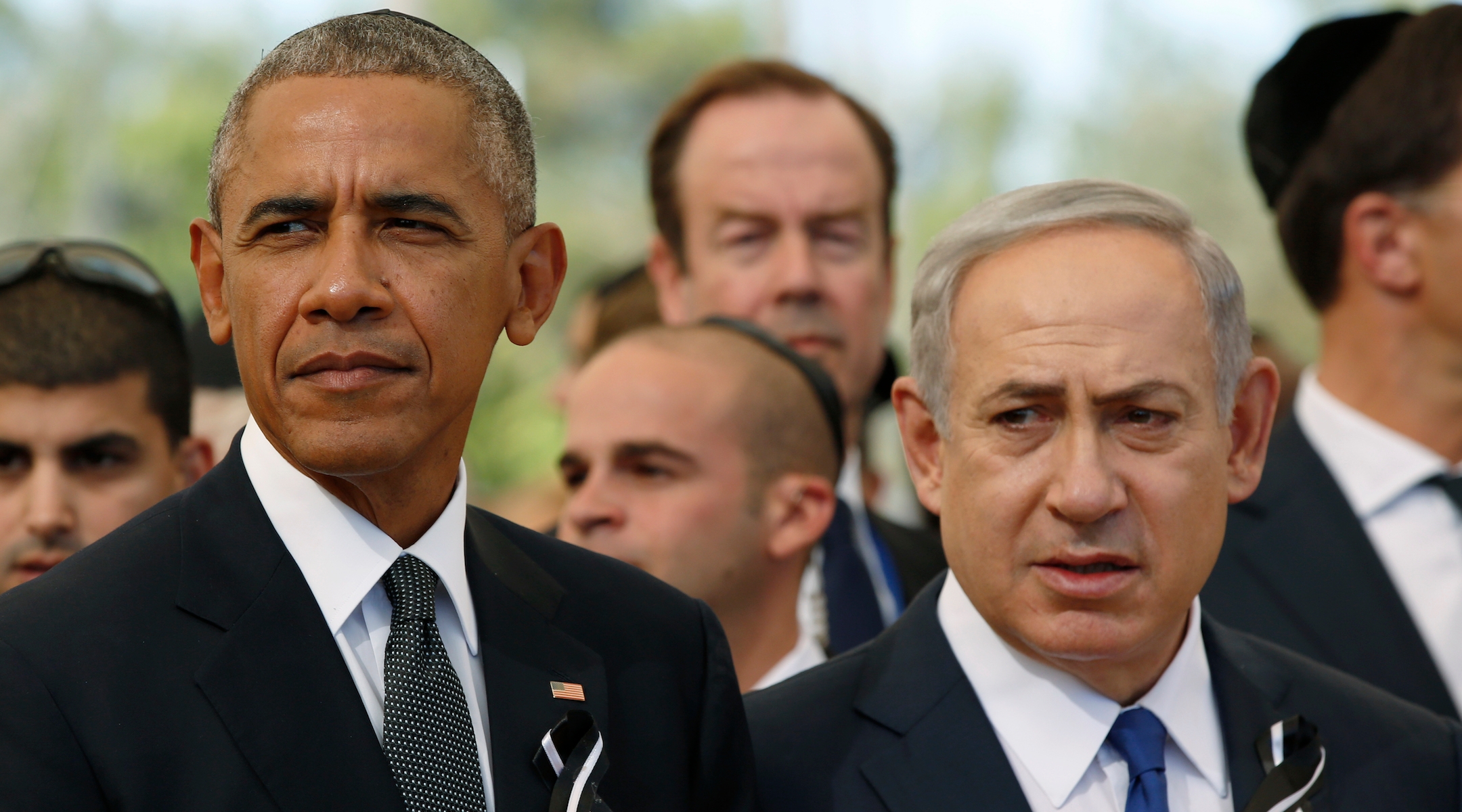
President Barack Obama and Israeli Prime Minister Benjamin Netanyahu look on during the funeral of Shimon Peres at Mount Herzl Cemetery in Jerusalem, Sept. 30, 2016. (Abir Sultan/Getty Images)
Has this happened before?
Yes, most recently under President Barack Obama. His 2015 Iran nuclear agreement, negotiated alongside Russia, China and a number of European countries, traded inspections and curbs on Iran’s nuclear program for sanctions relief. It was considered Obama’s signature diplomatic achievement.
Netanyahu hated it. He said it left Iran’s nuclear program in place and “paves Iran’s path to the bomb.” He campaigned against the deal extensively, castigating it in a wide variety of forums over many months. That effort culminated in a contentious address to Congress, arranged with the Republican speaker of the House, in which Netanyahu implored the body to vote the deal down.
His campaign failed, but the following year another harsh Iran deal critic — Donald Trump — was elected president. In 2018, at Netanyahu’s urging, he withdrew from the deal and applied what he called “maximum pressure” in the form of tougher sanctions.
In response, Iran ramped up its nuclear production; a few years later, President Joe Biden’s bid to resurrect the Iran deal failed.
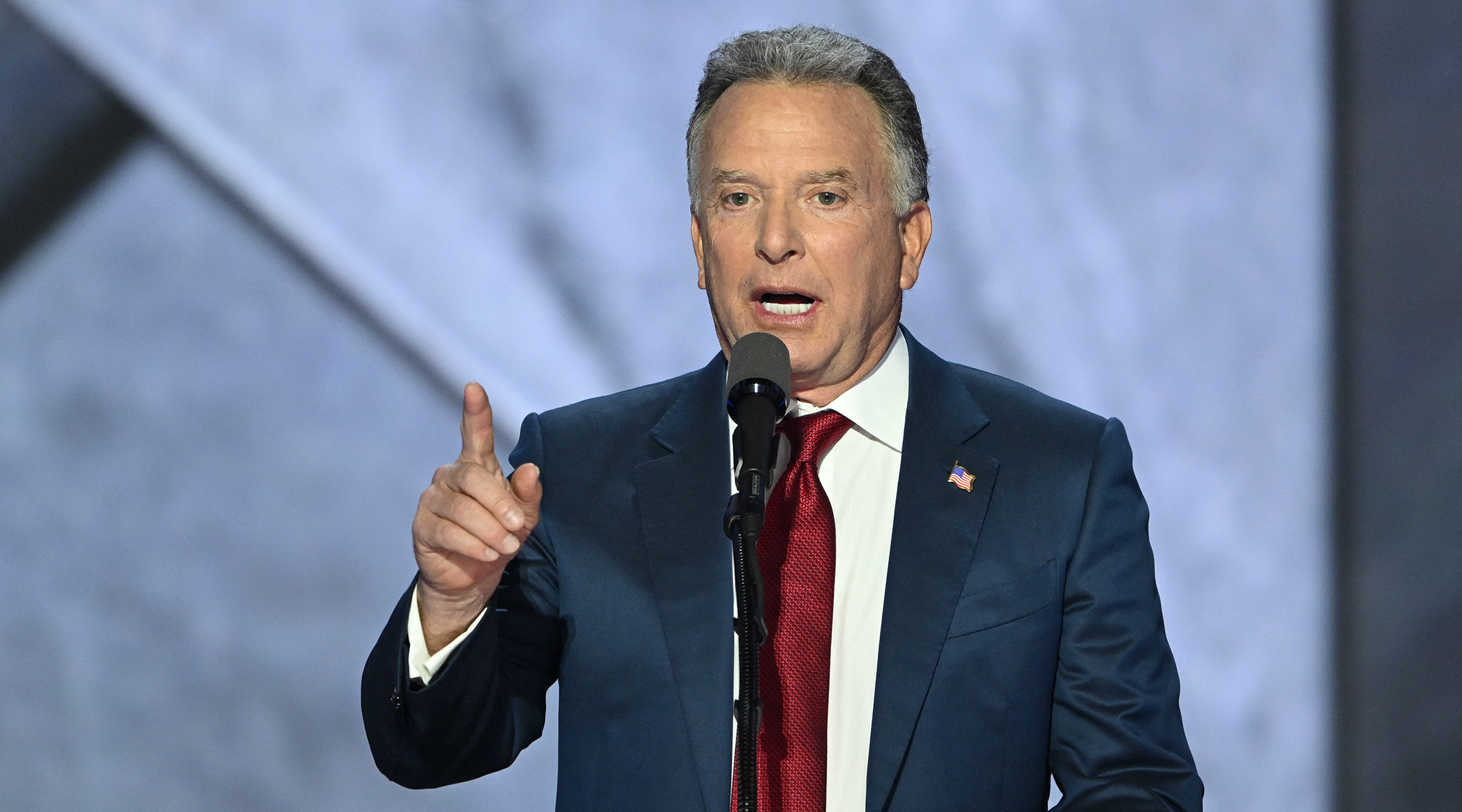
Steve Witkoff speaks during the last day of the 2024 Republican National Convention at the Fiserv Forum, Milwaukee, Wisconsin, July 18, 2024. (Andrew Caballero-Reynolds/AFP via Getty Images)
If Trump hated the Iran deal, why is he negotiating a new one?
The president famously purports to be the master dealmaker, and there’s perhaps no region where he enjoys negotiating more than the Middle East. In 2020, he brokered normalization deals between Israel and several neighbors.
Ahead of his inauguration this year, his team helped broker a ceasefire and hostage release deal between Israel and Hamas. Steve Witkoff, Trump’s friend and chief envoy, who is Jewish, led Trump’s team in that negotiation. He will lead the U.S. team in the Iran talks as well.
In 2020, the first Trump administration assassinated Iranian senior general Qasem Soleimani; the previous year, Trump had reportedly weighed a more extensive attack on the country before demurring.
Now, he’s sent a letter to Iran’s supreme leader, and is extending an invitation to talk — while still nodding toward the possibility of military action.
“Hopefully we can have a peace deal,” Trump said a month ago. “I’m not speaking out of strength or weakness. I’m just saying I’d rather see a peace deal than the other. But the other will solve the problem.”
What would be at stake in a deal, and what has changed?
For one, Iran is weaker: Israel has decimated its allies Hamas and Hezbollah. Syria, in turn, is no longer led by Iranian ally Bashar Assad. Russia, another Iranian ally, is bogged down in its invasion of Ukraine. And U.S. strikes have aimed at the Houthis, an Iranian ally in Yemen.
Trump’s advisers appear to be saying that this round of negotiations will aim to go farther than the Obama deal. Trump not only wants to monitor and limit the Iranian program, but to dismantle it. In exchange, Trump could offer sanctions relief, and Iran has floated the possibility of inviting U.S. investment.
“Iran has to give up its program in a way that the entire world can see,” Mike Waltz, the national security adviser, told CBS in March.
Trump also hopes to stem Iran’s ballistic missile program as well as its support for regional terror groups. So while the talks aren’t directly about the Gaza war, they could affect it. It’s possible that, in the wake of Oct. 7, 2023, Iran will be compelled, as part of a deal, to withhold its support for its “Axis of Resistance.”
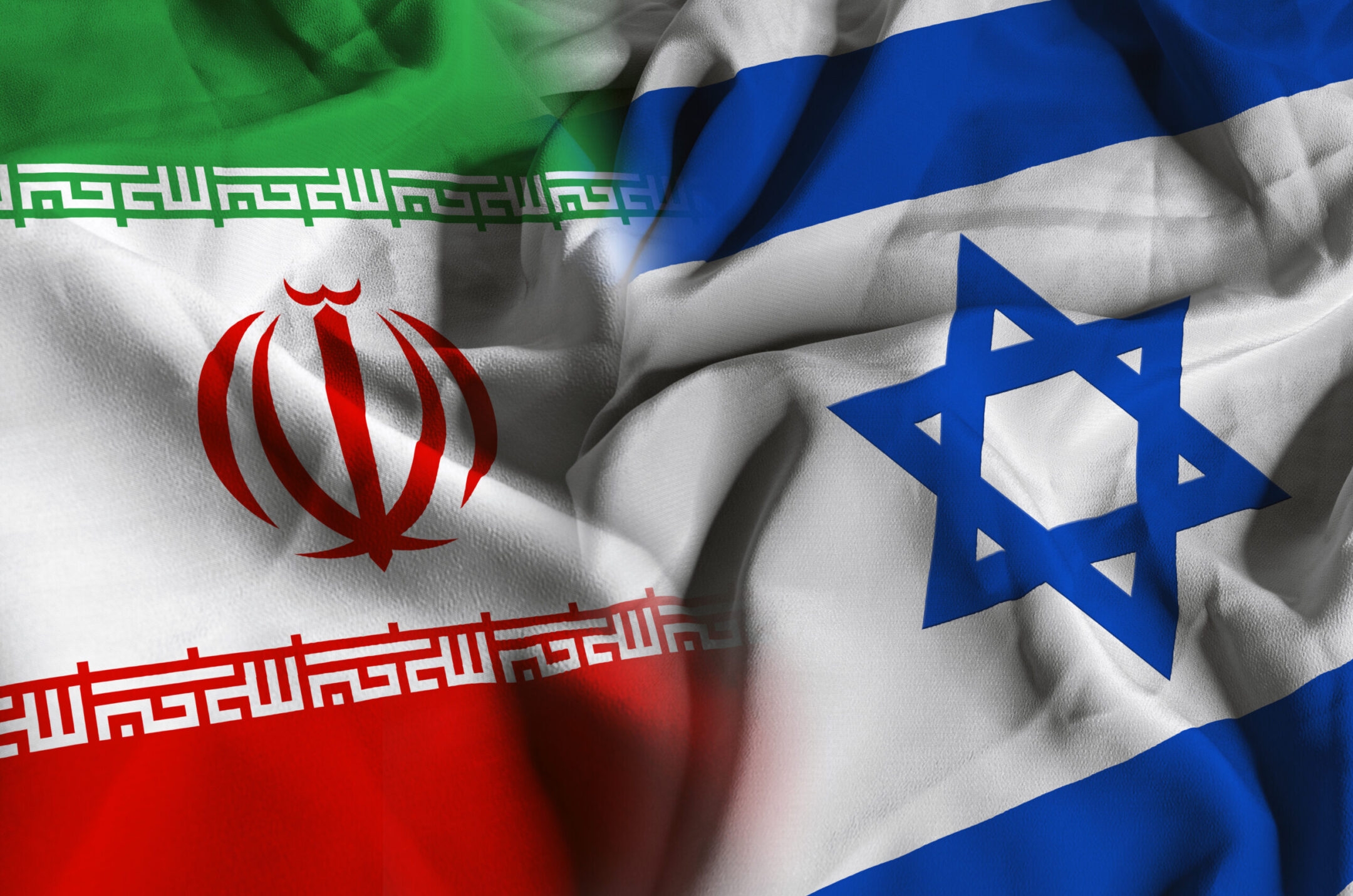
Iran and Israel have long been engaged in a proxy war but had not fired directly on each other until April 2024. (Getty Images)
How do Netanyahu and Israel feel about the talks?
Iran has no louder critic in the world than Netanyahu. For decades, he’s been globetrotting to speak out against the dangers the regime poses, seen by many to be acting as a present-day Winston Churchill facing down the greatest international threat of his day.
He’s brought a picture of a cartoon bomb to the United Nations to illustrate the point. Year after year, he proclaimed that the biggest threats facing Israel were “Iran, Iran and Iran.”
He isn’t alone. The vast majority of Jewish Israelis opposed Obama’s Iran deal. And criticism of Netanyahu’s Iran policy, within Israel, focuses largely on his tactics, which his critics said were overly antagonistic toward Obama. In other words, there’s no pro-Iran caucus to speak of within Israel’s political mainstream.
But this time, as opposed to 2015, in public Netanyahu is putting on a happy face. Trump is a close ally of the embattled prime minister, personally and ideologically, and Netanyahu almost never criticizes him in public as he did Biden or Obama.
Sitting alongside Trump, Netanyahu refrained from criticizing the impending talks — and tried to shape their parameters. He said the only good deal would be one that mimics Libya’s surrender, in 2003, of its nuclear arsenal.
“We’re both united in the goal that Iran does not ever get nuclear weapons,” Netanyahu said. “If it can be done diplomatically in the full way, the way it was done in Libya, I think that would be a good thing but whatever happens we have to make sure that Iran does not have nuclear weapons.”
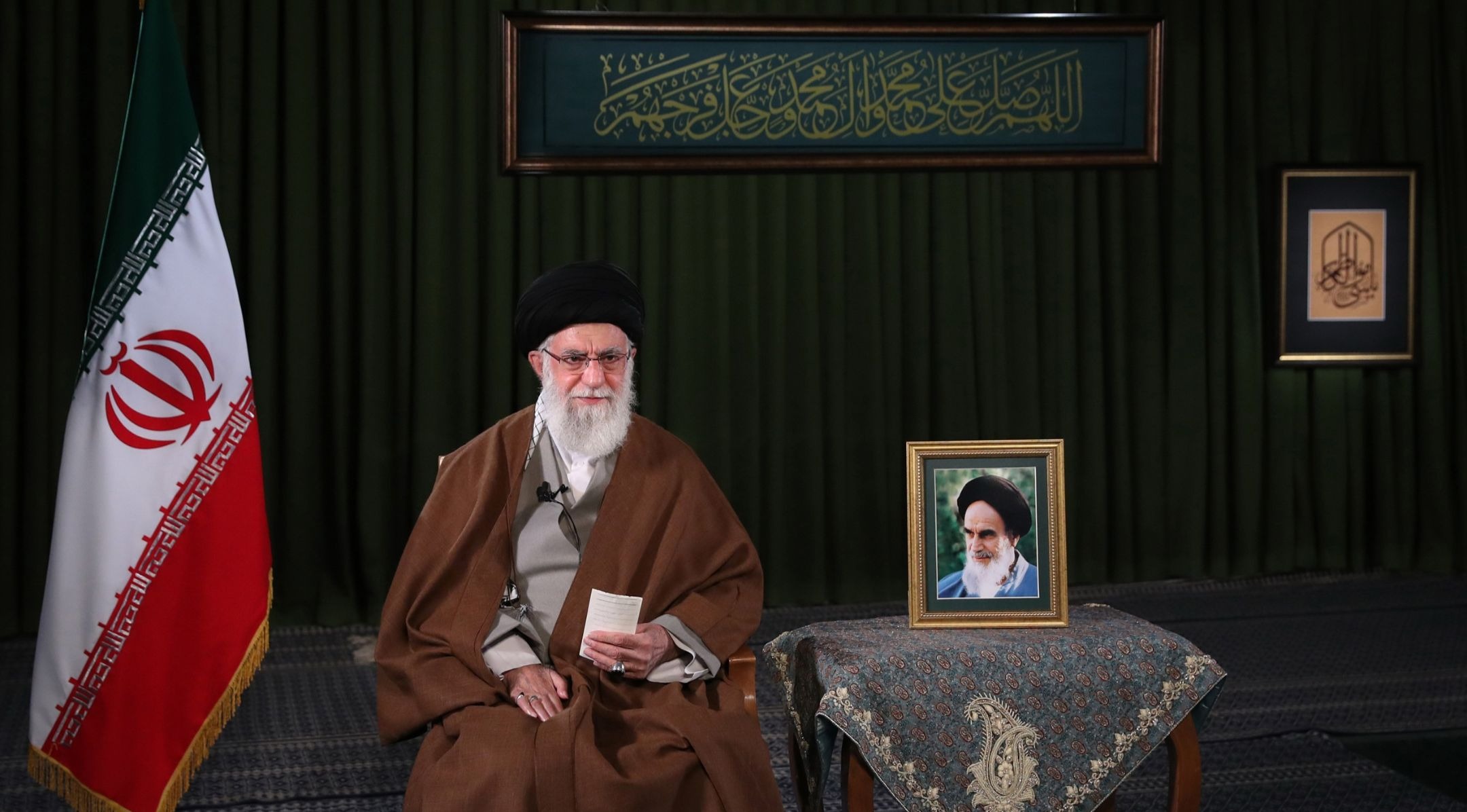
Iranian Supreme Leader Ali Khamenei delivers his message for the Iranian New Year, or Nowruz, in Tehran, March 20, 2020. (Iranian Supreme Leader Press Office/Handout/Anadolu Agency via Getty Images)
What is Iran saying?
It’s insisting that it does not want nuclear weapons — its president said Iran is “not after” them — and pivoted to welcoming the benefits of a deal with Trump.
“His excellency has no opposition to investment by American investors in Iran,” President Masoud Pezeshkian said in a speech in Tehran, referring to the supreme leader. “American investors: Come and invest.”
Iran said earlier this week that the talks would be indirect, contradicting Trump. And the country is also taking a threatening tone of its own: On Tuesday, Foreign Minister Seyed Abbas Araghchi also referenced the possibility of violence.
“Mark my words: Iran prefers diplomacy, but it knows how to defend itself,” he wrote on X.
What happens if the talks fail?
Before Trump’s announcement, some Israelis were pushing for a strike on Iran, arguing that the time was ripe. Now, both Netanyahu and Trump are saying that could happen if the talks fail — and that Israel would take the lead.
“If the talks aren’t successful with Iran, I think Iran’s going to be in great danger … because they can’t have a nuclear weapon,” Trump said during his White House press conference with Netanyahu. He added that if the talks fail, “It’ll be a very bad day for Iran.”
Netanyahu sent a more explicit message on Tuesday, saying that if Iran “drags out” the talks, “then there is the military option. Everyone understands this. We spoke about this at length.”
And Trump reiterated the stakes on Wednesday — adding that Israel would play a central role in any military action.
“They can’t have a nuclear weapon,” Trump told reporters about Iran, Reuters reported. “If it requires military, we’re going to have military. Israel will, obviously, be… the leader of that. No one leads us. We do what we want.”
JTA has documented Jewish history in real-time for over a century. Keep our journalism strong by joining us in supporting independent, award-winning reporting.
